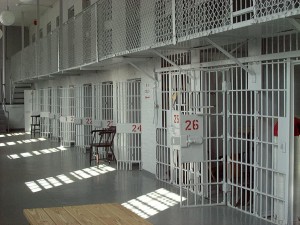NARCONON COMMENDS TEXAS - REHABILITATION NOT INCARCERATION
NARCONON COMMENDS TEXAS – REHABILITATION NOT INCARCERATION
 Narconon agrees that prison overcrowding is a national problem affecting numerous states throughout the country. Oftentimes our prisons are packed with non-violent drug offenders. Although diversion and rehabilitation programs exist in prisons with varying availability and success rates, as more people are convicted for drug related crimes the need for these programs is ever-increasing. Once incarcerated, many individuals who were merely drug addicts now become more serious criminals after being exposed to that element behind bars. If convicted of a felony their personal reputation is now marred and their ability to gain reputable employment is severely hindered.
Narconon agrees that prison overcrowding is a national problem affecting numerous states throughout the country. Oftentimes our prisons are packed with non-violent drug offenders. Although diversion and rehabilitation programs exist in prisons with varying availability and success rates, as more people are convicted for drug related crimes the need for these programs is ever-increasing. Once incarcerated, many individuals who were merely drug addicts now become more serious criminals after being exposed to that element behind bars. If convicted of a felony their personal reputation is now marred and their ability to gain reputable employment is severely hindered.
Legislators in Texas, acknowledging this problem, have enacted state reform that has expanded substance abuse facilities giving addicts more options for treatment. This also makes it possible for judges to recommend treatment for non-violent drug offenders rather than incarceration in more cases. Reforms were also made to increase treatment availability within the prisons for those who could not avoid prison time for various reasons.
Texas’ prisons, much like Alaska’s, were overwhelmed by low-level drug and alcohol offenders and large numbers of mentally ill offenders who would be better served in community diversion, substance abuse, and mental health programs.
Led by Republican Rep. Jerry Madden, the 2007 Texas Legislature enacted sweeping prison reform to better protect the public and reduce costs. This reform focused on expanding substance abuse and community-based mental health treatment and diversion programs, as well as enacting parole reforms for non-violent, low-risk offenders. Texas invested $241 million in residential programs for people on probation, supervision with substance abuse treatment needs, expansion of halfway houses, a new mental health Pre-Trial Facility, a new in-prison treatment unit for DUI offenders, and thousands of new beds for in-prison intensive substance abuse treatment. The $241 million was a lot of money, but it was still just a fraction of what was being requested to build new prisons. These reforms eliminated Texas’ need to build more prisons, and for the first time in the state’s history, there is no waiting list for substance abuse treatment in Texas.
http://homertribune.com/2011/02/prison-reforms-are-needed/
Narconon acknowledges Texas for allocating funds to help drug addicts rather than punish them. The long term benefits of increased availability and accessibility to treatment will undoubtedly be far reaching. Hopefully other states will see the value of such reforms and revise their own budgets to include more funding for rehabilitation rather than incarceration.
The Narconon drug rehab program, which began in prison and is now available throughout the world, has helped thousands of addicts get off drugs and become ethical and productive members of society.
